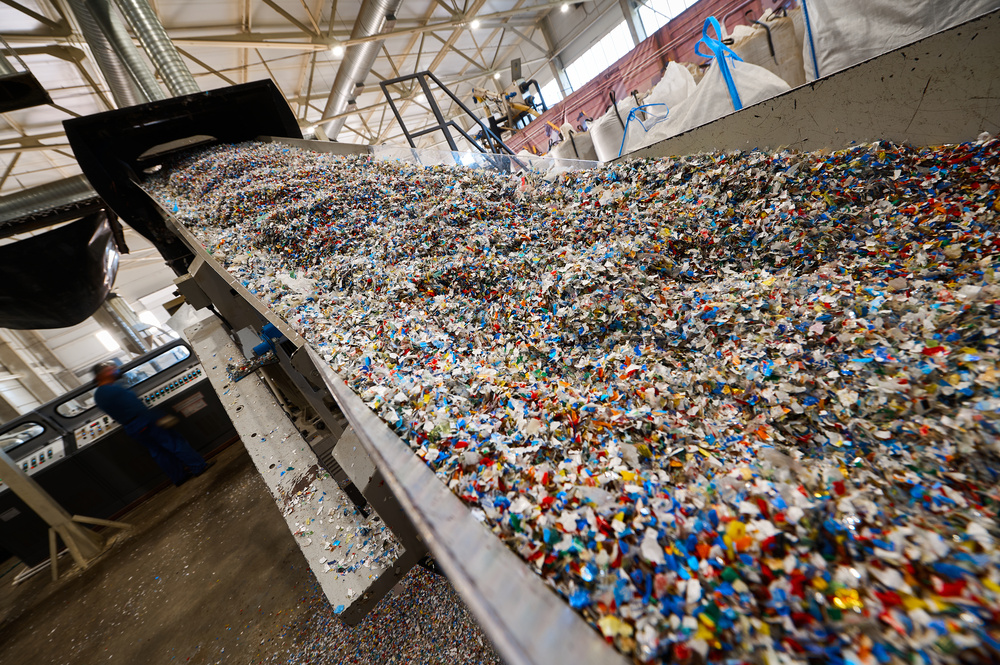Post-Industrial Plastic Recycling A Form of Decentralized SWM

Post-industrial plastics represent solid waste. In that sense, they are no different from post-consumer plastics or any other form of solid waste that needs to be dealt with. But one of the things that makes it unique is this: recycling post-industrial plastics, at least the way we do it, constitutes a form of decentralized solid waste management (DSWM).
Although DSWM does have its disadvantages, they tend to be outweighed by the many advantages it offers. We utilize the DSWM principle so well for recycling post-industrial plastics that we wonder why the same principles are not applied to municipal solid waste management.
Centralization vs. Decentralization
The best way to understand DSWM is to compare it against centralized solid waste management (CSWM). The latter form of solid waste management is what is normally practiced at the municipal level. It is denoted as being centralized due to the fact that a central authority controls everything.
In a typical CSWM scenario, you have either a city or county exercising authority over waste management at every level. There may be a county-run landfill to which all non-recycled waste is transported. In the absence of a local landfill, the governing authority contracts with an out-of-county or out-of-state landfill to accept the waste.
Even when private contractors are invited by the local government to provide waste disposal services to residents, all the waste is still transported to the landfill chosen by the municipal authority. In addition, the municipal authority maintains control over all recycling.
A DSWM scenario is typified by numerous, smaller entities that handle different aspects of the waste management stream independent of one another. Although the city or county government might choose to remain involved, it doesn’t have to be. Each independent operator handles its own part of the equation. Together, they manage solid waste effectively.
Why the DSWM Model Works
In most cases where a DSWM model has been implemented, you are talking about private contractors handling the various aspects. We are a private company that works with other private companies to collect industrial scrap plastic and turn it into regrind for sale to manufacturers. Similar arrangements can work within the municipal waste management space.
DSWM works thanks to some key components:
- Less Costly Transportation – The DSWM model tends to lead to less costly transportation because vehicles are not traveling the same long distances. Everything is handled locally.
- Increased Recycling Opportunities – When DSWM is implemented, those entities generating solid waste are also responsible for separating it prior to collection. This increases recycling opportunities.
- Greater Engagement – Implementing DSWM effectively requires engaging with consumers. The greater consumer engagement leads to people taking responsibility for the waste they generate. This can actually reduce total waste output.
Landfilling, composting, incineration, and recycling are all methods for dealing with solid waste. Recycling is the method we have chosen here at Seraphim Plastics. By recycling scrap plastic waste, we are putting it back into the manufacturing string by turning it into usable regrind material.
Decentralization Really Can Work, Especially for Industrial Plastic Scrap
Prior to the drive for metro-oriented government that began in the late 1970s and early 80s, decentralization was the model for most public services. It worked well. When we compare what used to be with what now currently is, it would appear as though decentralization outperforms centralization on multiple levels.
Where solid waste management is concerned, decentralization really can work. It is simply a matter of having the will to do it. What we do is a form of DSWM for industrial plastic scrap. If you would like to work with us on it, contact us. You may have plastic we can use.